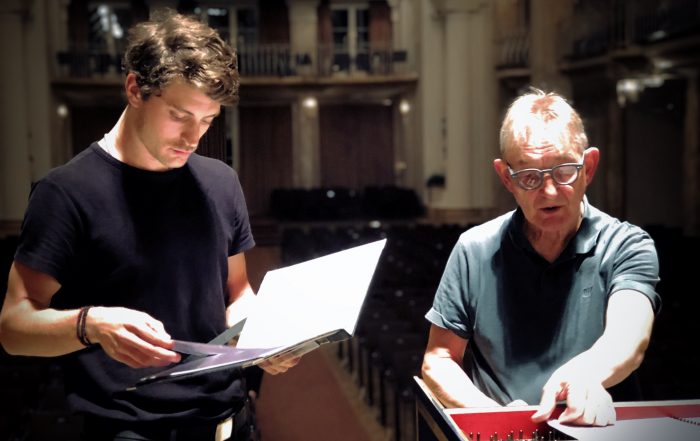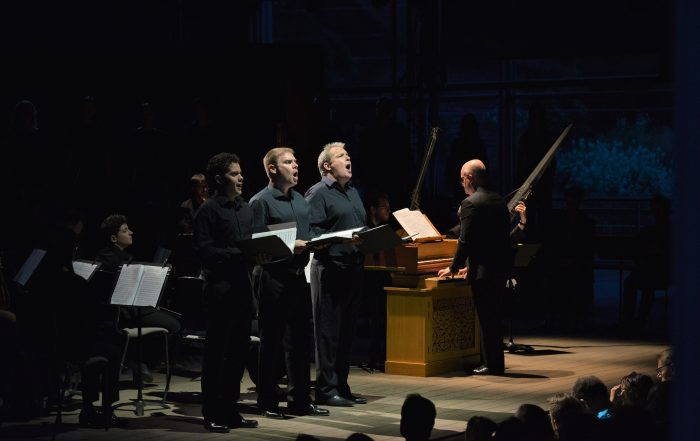Benjamin Britten’s (1913-1976) extraordinary piece The Young Person’s Guide to the Orchestra has been a favourite of education schemes and family orchestral concerts for years.
Britten pinched one of Henry Purcell’s (1659-1695) themes and used it to explore the sections of the huge modern symphony orchestra in an imaginative series of variations. With each variation highlighting the colours, styles and characteristics of each instrument through wonderful flights of fancy, it’s not hard to see why such a dazzling display has been so popular.
But the origins of Britten’s inspiration are much darker than such wholesome fun. Instead it’s surrounded by murder, deceit, betrayal and revenge. No, we’re not talking about the next storyline from Game of Thrones or the latest Netflix thriller, but Aphra Behn’s 17th century play Abdelazer (otherwise entitled ‘The Moor’s Revenge’) for which Purcell composed the accompanying music.
Purcell’s series of dances, curtain tunes and act music (indicating the start or ending of acts in the play) offer some small relief to the otherwise gory plot. Abdelazer, a captive and slave in Spain, is the focus of the story. Having gained royal favour, he sets about avenging his ousted father by destroying the Spanish royal family and the majority of their court. Infatuated with her lover Abdelazer, the Queen of Spain becomes his instrument of death, murdering her own husband and eldest son (amongst other cruel deeds) before she is eventually cast aside and murdered herself.
Pretty savage stuff!
We’ll be performing Purcell’s suite from Abdelazer, plus even more fantastic music, at Saffron Hall on 26th January 2019 Find out more>>>
You can find out more about the Rondeau from Purcell’s Abdelazer in the BBC’s Ten Pieces programme below:
Other Blog Posts
Experiencing South Korea
Louise Hogan offers a wonderful insight into our recent tour to East Asia We are here with Sumi Jo, a star soprano the like of which we have never experienced. One dress is
Monteverdi Vespers at Garsington
(c) Garsington Opera
Handel vs the Opera of the Nobility
It’s easy to think of Handel as the all-conquering hero, arriving in London from his Italian adventures, and commanding the operatic scene for the rest of his life. While any passer-by on the streets
Wanted for murder
There are plenty of mysteries out there in the musical world: the two heads inside Haydn’s tomb, the enigma behind Elgar’s variations. But what of the gruesome murder of poor Jean-Marie Leclair (1697-1764)? From
Tainted love: the making of a monster
It’s the mother of all bad hair days for Scylla in Leclair’s only opera. Based on Ovid’s Metamorphoses, Scylla is just a nymph going about her business. Not especially interested in love, she rejects



